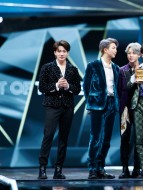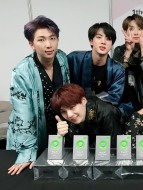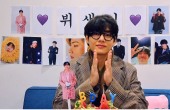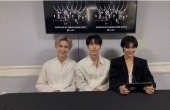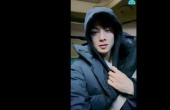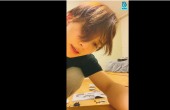Home > Feature
Singing shows get a mysterious twist
Koreans love singing and they love to watch people sing on TV.
In the latest addition to a horde of popular singing TV programs, two shows are in with a big, counterintuitive twist: musical talent has nothing to do with winning.
 |
| (Mnet) |
Mnet’s “I Can See Your Voice,” launched in February, proclaims to be “a mystery music show where the tone-deaf can win the top prize.”
Its eight contestants each week are not allowed to sing until the end of the last round, when the winner is chosen. The objective of the judging panel is to weed out the bad singers based on appearance and other nonmusical cues, and find the talented singer for a final duet with the star guest. If the final winner is a talented singer, they land a contract; if he or she is one of the tone-deaf decoys, a 5 million won (roughly $4,500) prize awaits.
MBC’s “Mystery Music Show Mask King,” launched this month, turned that formula on its head. On this show, contestants sing from the very beginning, but they are in elaborate costumes and masks that hide their identity from the star panel. This time, the panel must make their choices based on the singers’ voices alone, with no knowledge about what they look like. The criteria for judgment: the intrigue invoked by each voice.
“It’s not a competition to choose the best singer,” said Min Cheol-gi, the producer of “Mystery Music Show Mask King” at a news conference at MBC in Mapo-gu, Seoul on April 2. “I wanted to have viewers listen to these unique, emotionally rich voices with no prejudice. The ‘competition’ element is simply there to add drama.”
 |
| (MBC) |
Lee Taek-gwang, a culture critic, said that the mystery element was not the selling point of these new shows, but a way to tie together the best elements of previously popular singing shows.
For about six years, convincing people to sing and be judged publicly has been a steady-seller on Korean TV. New shows each year have repeated and evolved that theme with just small tweaks in the larger framework of a singing competition, he explained.
“We’re seeing so many singing shows because it’s a win-win,” he said. “From the production side, it’s a low-cost and easy setting.
From the viewers’ side, singing can be enjoyed by everyone, young and old, and it doesn’t require specialized knowledge to be able to judge good and bad singing.”
According to him, star discovery programs “Superstar K,” “Star Audition,” and “Kpop Star” from 2009 to 2012, put a spotlight on the moving life stories of aspiring singers. Star-powered variations “I Am a Singer” and “Immortal Song” represented a revival of songs that had been forgotten, and acknowledgment of artists who had faded from the public’s memory.
The trend for 2015 seems to be removing the importance of singing talent and amplifying the game-show element of mystery, as shown in the “I Can See Your Voice” and “Mystery Music Show Mask King.”
“These news shows aren’t just about figuring out the mystery,” Lee said. “Hiding something about the contestants is a new spin on the story of discovering hidden talent and giving everyone a fair chance of recognition. Solving the mystery is just a framework for that underlying story.”
By Won Ho-jung (hjwon@heraldcorp.com)









